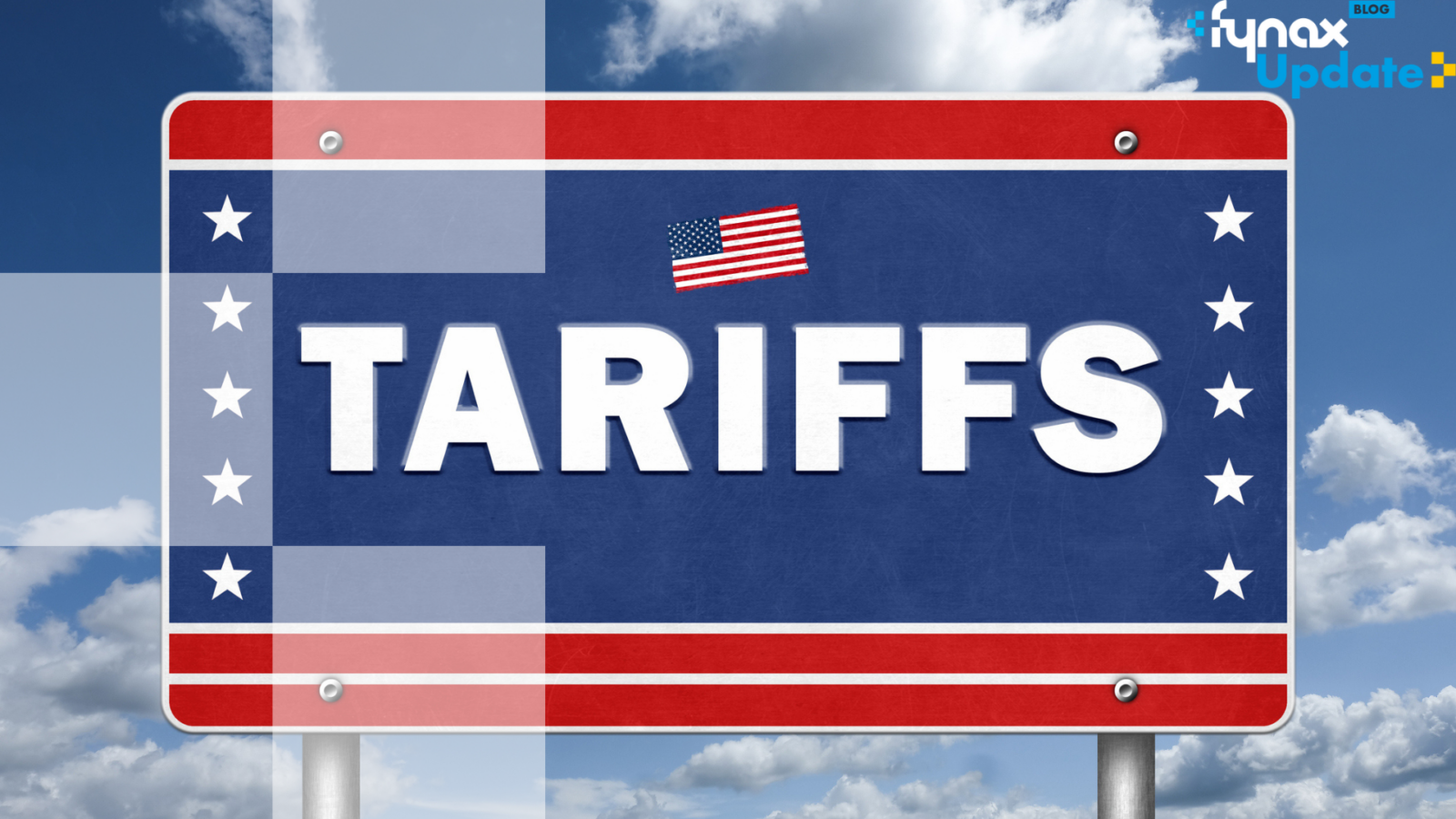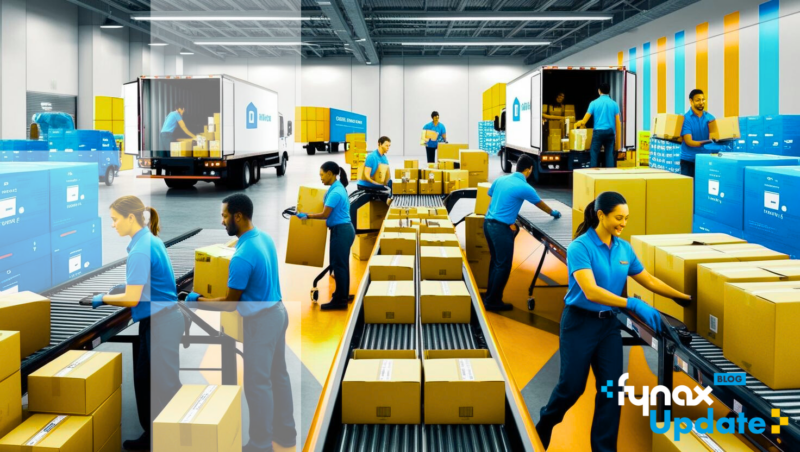US trade war puts e-commerce under pressure due to customs policy: what online retailers urgently need to know now
Share this article
Categories

The radical new Customs package by US President Donald Trump is having an effect. The new import tariffs are sending the global economy into a state of shock, causing stock markets around the world to plummet and forcing EU member states and other affected countries to the negotiating table. By tightening tariff policy, Trump and US Secretary of Commerce Howard Lutnick have triggered far-reaching consequences for international trade: cross-border online trade in particular is now under pressure, as the new tariffs on imports into the US are hitting European retailers particularly hard and require swift action. We summarize what is particularly important for you as an online retailer and how you can best prepare for this.
The new customs reality: Hard facts for online retail
On Wednesday, Trump announced in Washington a comprehensive customs plan. All-inclusive ten percent duty on all imports from 186 countries or economic regions into the USA. In addition, certain countries, including important trading partners, are subject to even higher tariffs. It is noticeable that Southeast Asian export countries in particular, such as Thailand, Vietnam and Japan, are subject to comparatively high tariffs. very high customs duties of more than 40 percent. For the European Union, a tariff of 20 percent is to apply, for Switzerland 31 percent, for China 34 percent and for the South African country of Lesotho even 50 percent. The aforementioned "flat-rate tariffs" of ten percent already came into force on April 5, with the higher special tariffs to follow on April 9.
E-commerce under pressure: software providers particularly affected
The new tariffs are putting the industry under pressure. Analysts from Bank of America (BofA) and the New York Times This would hit the tech sector particularly hard, especially providers of e-commerce software. Important companies such as Shopify or Bigcommerce, which provide extensive store system software for online retailers, could experience significant disadvantages as they are heavily dependent on international supply chains. However, this also applies to large tech companies such as Apple, Dell, Meta and Google, as they are also dependent on international supply chains. Shopify itself commented on the new tariffs in a Statement in the New York Times: "Without small-business protections, legitimate entrepreneurs suffer under policies intended to curb exploitation. This hikes costs, disrupts supply chains, and hinders cross-border trade."
But what does this mean for you specifically? Due to the increased customs duties, the store systems could, for example, make price adjustments and thus increase the price for their users. In addition, physical products are also affected by the changes. eBay, for example, has informed its retailers in an official Statement announced that from April 5, 2025, additional customs duties will apply to all orders with a value of 800 dollars or more. Due to customs clearance and the new requirements, there may also be delays in delivery. In principle, however, customs duties and import fees will only be charged once the purchase has been completed.
The new customs policy therefore has direct and indirect effects on online retailers. Here is a quick overview:
- Higher purchase prices: The tariffs make imported goods from the affected countries considerably more expensive.
- Rising sales prices: The new tariffs mean extra costs for online retailers, which reduces their profit margin. It therefore makes sense for retailers to increase their sales prices in order to pass these costs on to customers.
- Uncertainty and planning difficulties: The sudden introduction and level of tariffs are creating great uncertainty in the industry. Online retailers are faced with the challenge of recalculating their pricing, margins and stock levels. Long-term planning is becoming more difficult.
Recommendations for online retailers: Take action now!
In view of current developments, online retailers should act proactively and take appropriate protective measures:
- Inventory and analysis: Get a precise overview of your product range and supply chains. Which products are directly or indirectly affected by the new tariffs? How high are the current margins and how much scope do you have for price adjustments?
- Supplier communication: Contact your suppliers to clarify the exact impact of customs duties on your purchase prices together. Discuss new conditions and, if necessary, look for alternative sources of supply in countries that are less affected by tariffs.
- Create understanding through communication: Take into account the price sensitivity of your customers. Transparent communication of price adjustments to your customers can help to create understanding.
- Check your product range: Consider the possibility of adapting your product range to offer fewer dutiable goods.
- Customer communication: Inform your customers early on about possible price increases or delivery delays. Transparency and open communication are crucial to maintaining trust.
- Risk management: Develop strategies to minimize the impact of customs duties on your business. The search for alternative sales markets would also be an option.
- Follow political developments: Keep up to date with the latest developments. New opportunities or risks may arise as a result of further political decisions.
Conclusion: Act now to stay ahead of the competition
The trade crisis with the USA poses considerable challenges for online retailers. Of course, it is difficult or impossible to be fully prepared for all eventualities - especially because the political situation and regulations can change at any moment. Ultimately, however, there are always ways to protect yourself in the best possible way. These include working closely with your suppliers and tapping into alternative sales markets to reduce your dependence on the US market. If you take the right steps now, do your homework and react flexibly to the changes, you have a better chance of remaining competitive and minimizing the impact of the tariffs. The time to wait and see is over - active action is required.





